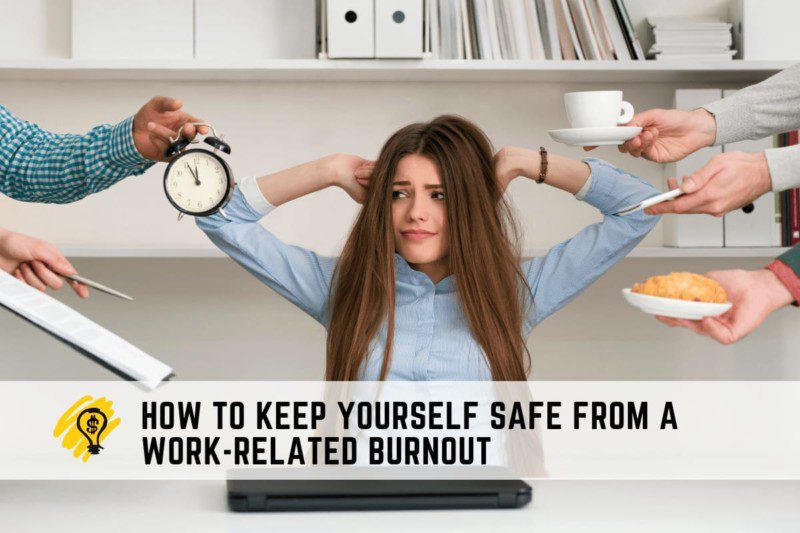Burnout is a serious problem affecting people across all industries, including those in the workplace. It can be difficult to recognize work-related burnout and even harder to take steps to prevent it from happening or address it when it does.
However, with a combination of preventive measures and proactive techniques, it’s possible to keep yourself safe from work-related burnout.
Know the warning signs of burnout
One of the most important steps is to know the warning signs and recognize if you’re feeling burned out from your job. These can include physical, mental, and emotional fatigue; loss of motivation or enthusiasm for work; feeling unsatisfied with your job; and being overwhelmed by tasks or workload. If any of these signs arise, it’s important to take action right away.
On the other hand, if you do recognize the signs of burnout, don’t be afraid to ask for help. Talk to colleagues or supervisors and let them know how you are feeling and that you need their assistance in dealing with it.
Set boundaries and manage your workload
It’s important to be aware of how much work you can handle without feeling overwhelmed so that you can set reasonable boundaries. Make sure to prioritize tasks based on importance and make time for yourself outside of work by taking regular breaks and engaging in activities that help you relax.
For example, if you don’t have time to take a full break, just taking five minutes here and there to do something enjoyable like listen to music or go for a walk can make a world of difference. Perhaps even more importantly, make sure to create a plan that outlines how you will manage your workload.
Get clarity with neuro-linguistic programming
When you’re feeling overwhelmed, it can be difficult to take action and think through problems. Namely, if you are wondering what is NLP and how can it help, neuro-linguistic programming (NLP) is a set of techniques used to change the way you think, feel, and act in certain situations. It can help achieve clarity on your goals and objectives so you can focus on what really matters and make better decisions.
A lot of times, it can be hard to stay motivated when you are feeling burned out. Applying NLP techniques can help give you the clarity and focus that you need to stay on track with your goals.
Communicate your needs
If work-related stress is becoming too much, talk with your boss or team about what can be done to alleviate the pressure. Be honest about the situation and make sure to clearly express what would help reduce burnout (e.g., additional resources, more time off, etc.).
If you find that your requests are not being met, it may be time to consider a new job or opportunity. Namely, there are a lot of instances when employees are pushed too hard, and the situation is simply not sustainable.

Find a balance between work and your personal life
Burnout can be prevented by ensuring that you have a healthy balance between work and home life. Take time to relax, socialize, and engage in activities that bring joy. It’s also important to make sure you’re getting enough sleep and eating healthy so that you can maintain your physical and mental well-being. A good idea is to create a routine that includes healthy habits like physical activity and mindfulness techniques.
Take care of your physical and mental health
Taking care of your physical and mental health is essential for preventing burnout. Make sure to get enough sleep, exercise regularly, eat a balanced diet, stay hydrated, and take time for yourself. To further reduce your stress, incorporate meditation or yoga into your everyday routine. Doing this on a regular basis will help you gain control over stress and become more resilient. Should you feel the need for extra support in managing your anxiety, seeking out a therapist can be of tremendous value to you – there are people who care and have the knowledge necessary to assist!
Seek professional help
If your efforts to prevent or address burnout are not enough, don’t hesitate to reach out to a mental health professional. A therapist or counselor can provide helpful strategies for managing stress and anxiety as well as offer support during difficult times. The important thing is to take action and know that you don’t have to go through it alone.
Burnout can be an overwhelming experience, but with the right combination of preventive measures and proactive techniques, it’s possible to keep yourself safe from work-related burnout. Taking the time to recognize warning signs, setting boundaries and managing your workload, communicating your needs, taking care of yourself, and seeking professional help when needed can all be effective ways to reduce the risk of burnout. Through these steps and more, you can protect yourself from its damaging effects.



